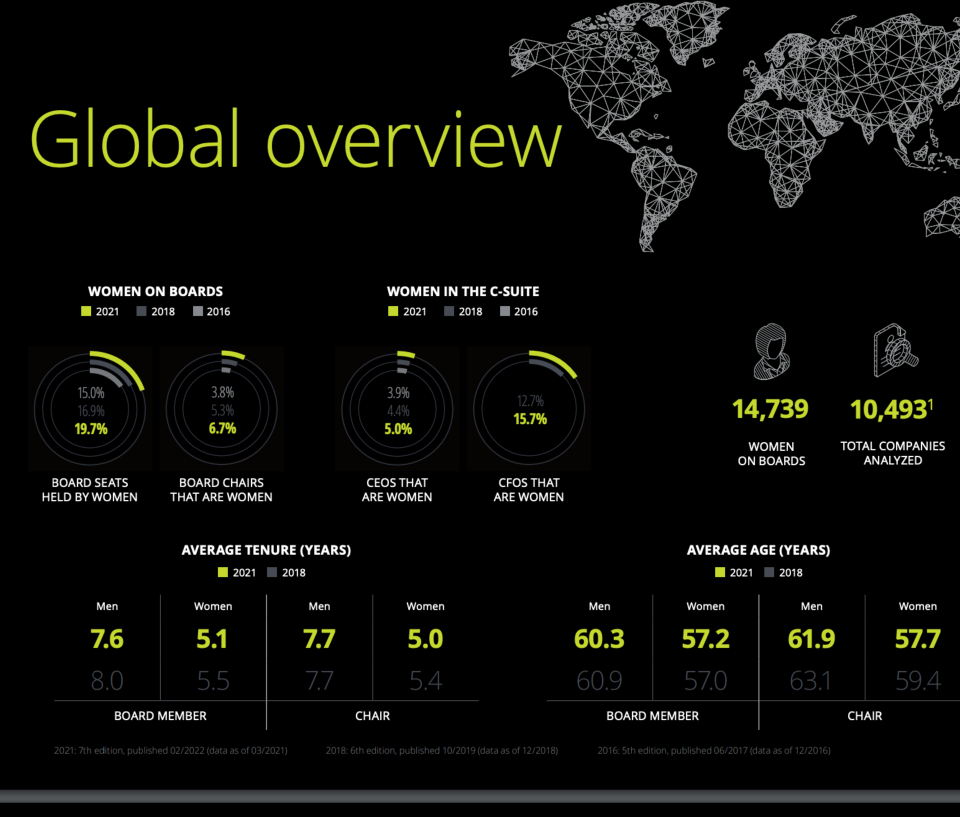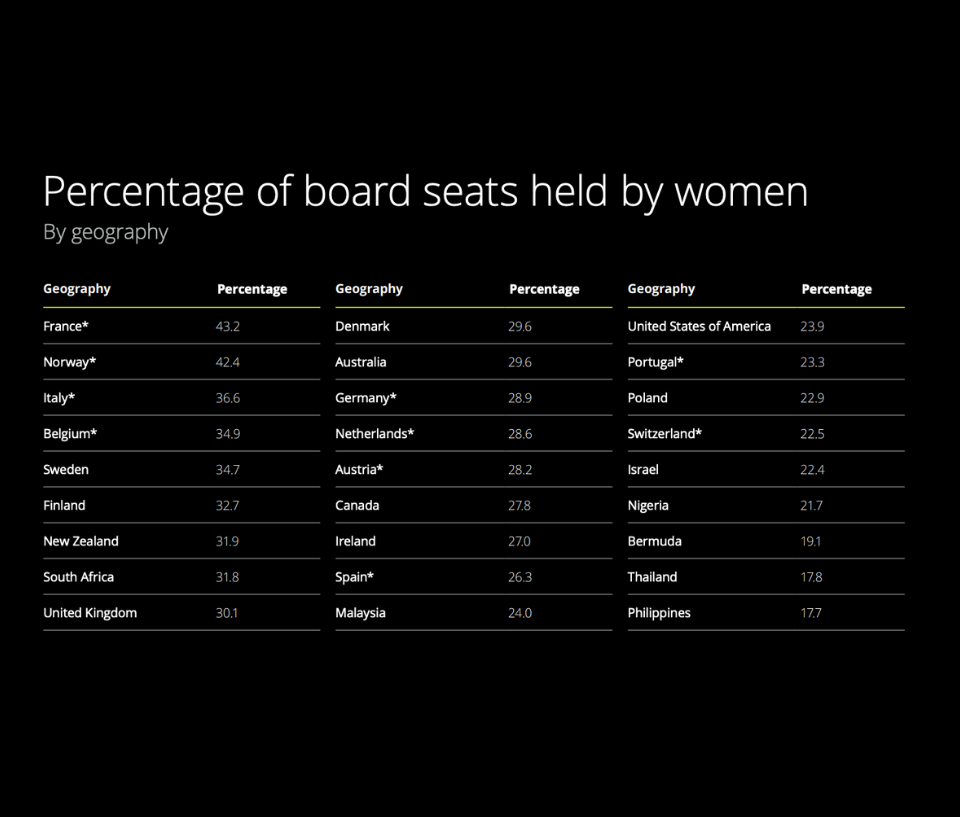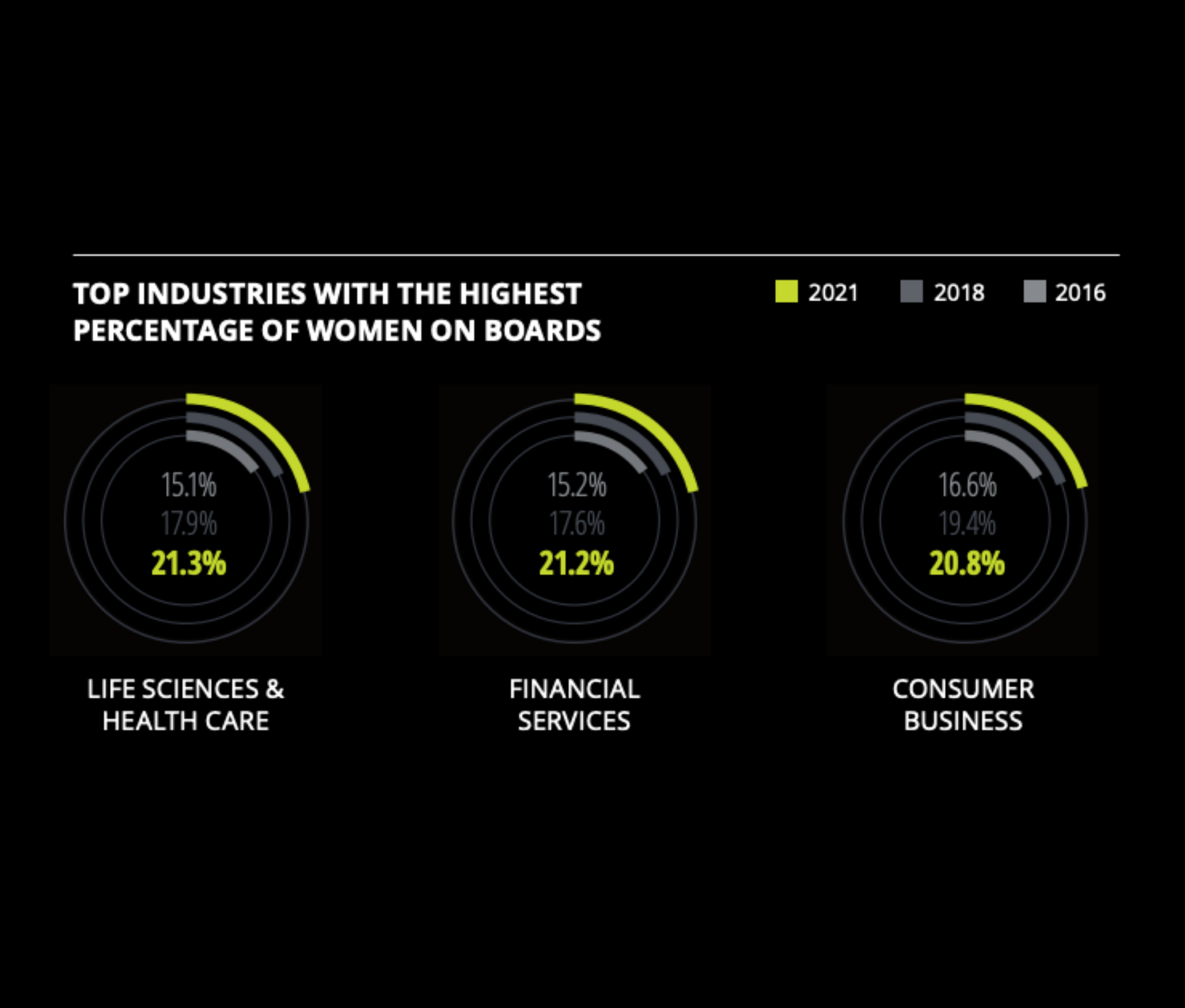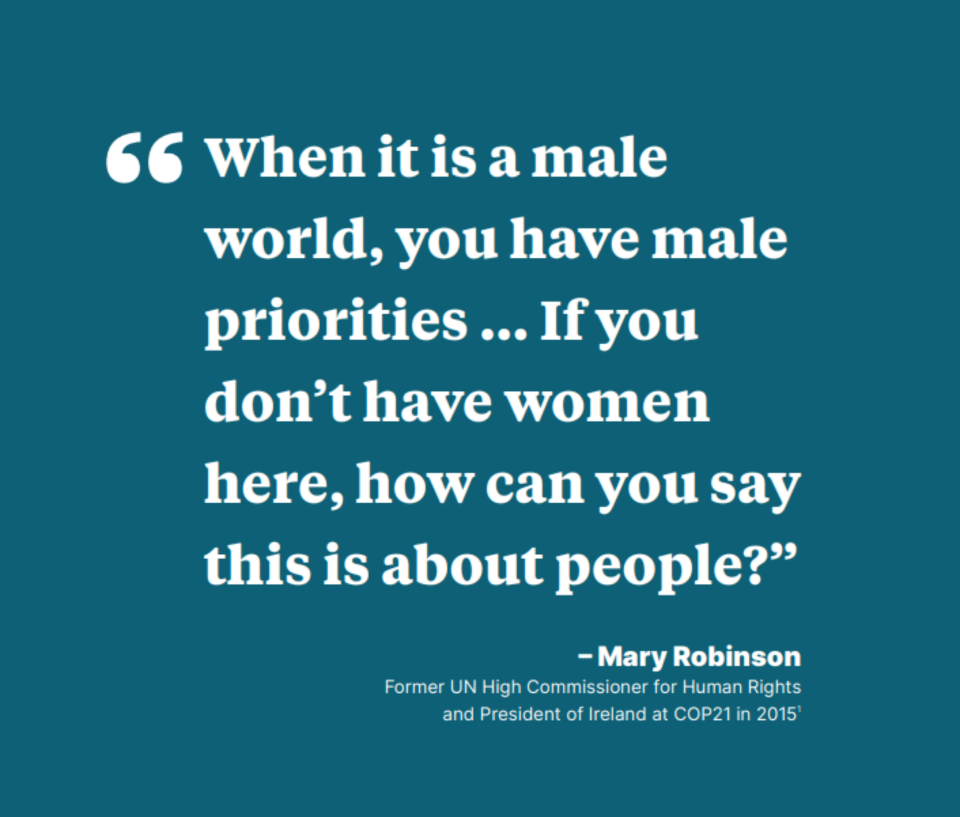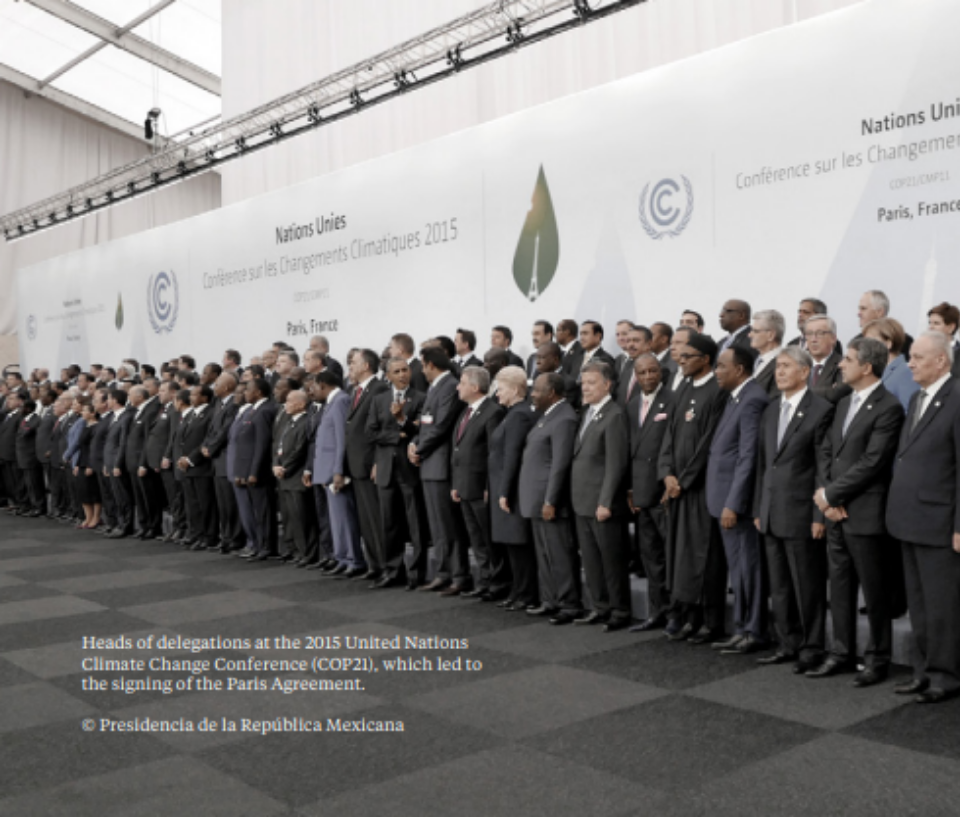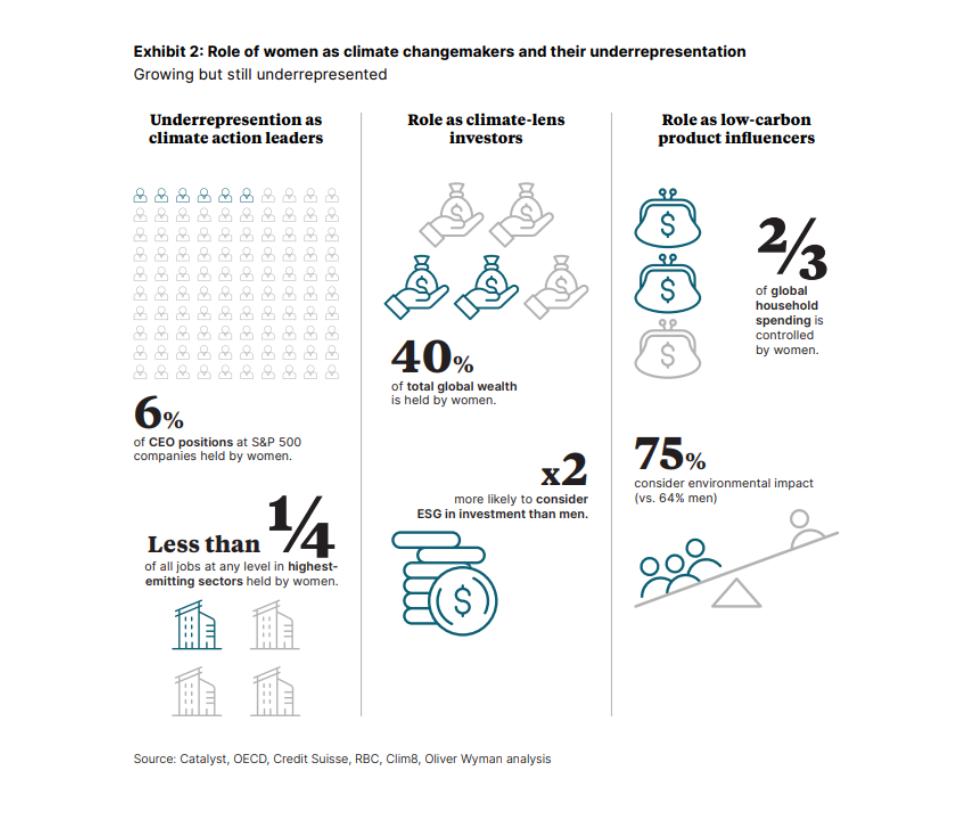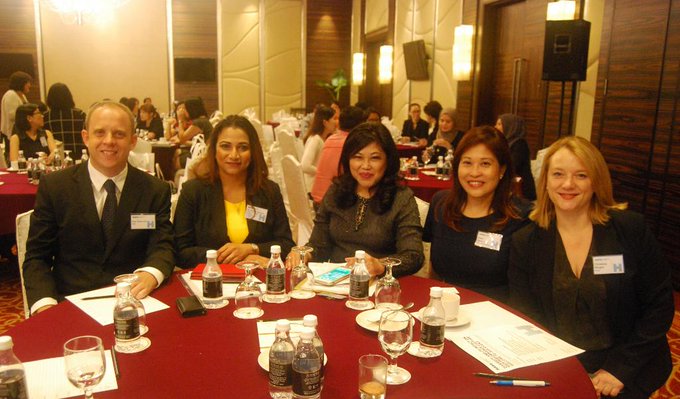
UK closes in on 40% women at board level
The UK has climbed to second in the international rankings for women’s representation at board level.
Almost 40% of UK FTSE 100 board positions are now held by women, compared with 12.5% just ten years ago. And there are almost 38% women on board across the FTSE 350.
The data has been published in a new report by the Government-backed FTSE Women Leaders Review, which monitors women’s representation in 24,000 positions on FTSE 350 Boards and in Leadership teams of the UK’s biggest companies, building on the success of the previous Hampton-Alexander and Davies Reviews.
What this new data from the FTSE Women Leaders Review reiterates is that we don’t need mandates - aspirational targets change not just the numbers but also the culture inside companies.
Key highlights from the report include:
- Almost 40% of UK FTSE 100 board positions are now held by women, putting the UK second in international rankings for board representation.
- FTSE 100, 250 and 350 all improved the number of women in Leadership roles in 2021, with the Government’s and 30% Club’s voluntary, business-led approach paying dividends.
- The new review also sets out bold recommendations to build on this progress, including a voluntary target for FTSE 350 executive leadership teams to achieve 40% female representation by the end of 2025. It is currently less than 20%, according to BoardEx data.
- It is also asking FTSE 350 companies to have at least one woman in the Chair, Senior Independent Director role on the Board and/or one woman in the CEO or CFO by the end of 2025. There are just 18 and 48 at present, that’s 5 and 14% respectively.
- The Review has also increased in scope beyond the FTSE 350 companies to include the largest 50 private companies in the UK by sales.
The 30% Club welcomes the extended focus of the Review.
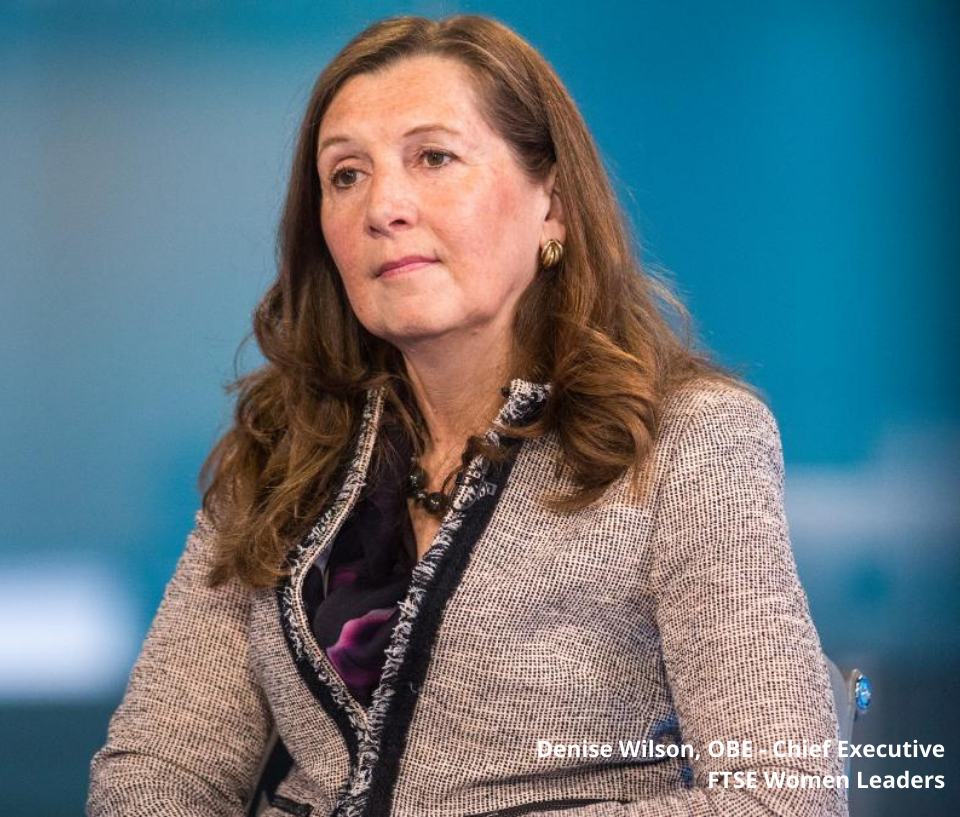
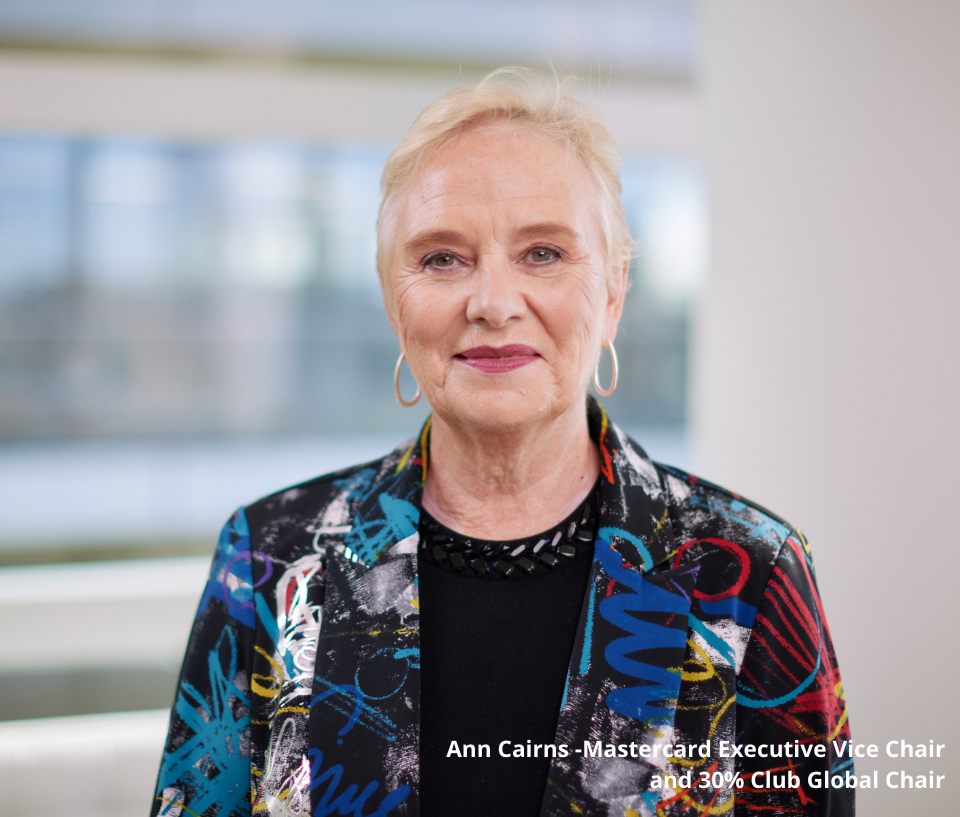
30% Club Global Chair Ann Cairns said:
Business Secretary, Kwasi Kwarteng, said:
“UK businesses have made enormous progress in recent years to ensure that everyone, whatever their background, can succeed on merit – and today’s findings highlight this with more women at the top table of Britain’s biggest companies than ever before.
“However, we should not rest on our laurels, and the FTSE Women Leaders Review will build on the success so far of our voluntary, business-led approach to increasing women’s representation on boards and in leadership, without the need for mandatory quotas.”
Minister for Women and Equalities, Liz Truss, said:
“It is excellent to see the progress being made, but we know there is more to be done. This Government is committed to levelling up all parts of our country, working to tackle inequality and promoting equality of opportunity, including at senior level, so everyone can thrive.”
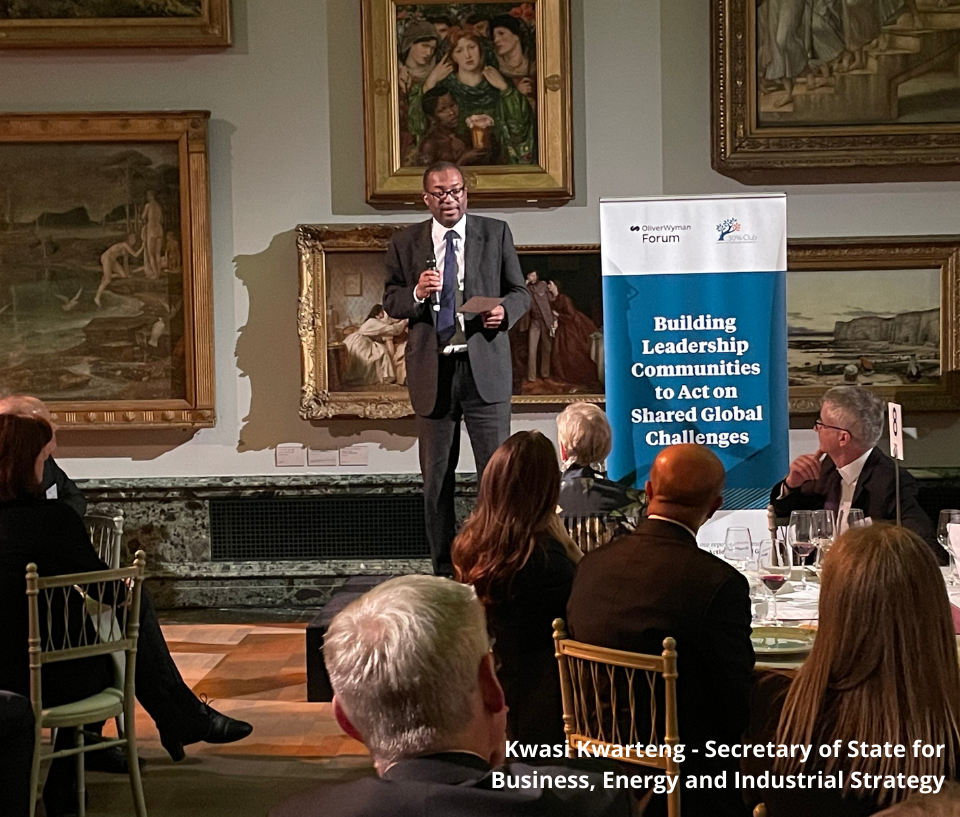

Here are the four new recommendations of the FTSE Women Leaders Review in full:
The voluntary target for FTSE 350 Boards & for Leadership teams is increased to a minimum of 40% women’s representation by the end of 2025
- FTSE 350 companies to have at least one woman in the Chair, Senior Independent Director role on the Board and/or one woman in the Chief Executive Officer or Finance Director role by the end of 2025
- Extending the scope of the FTSE Women Leaders Review beyond FTSE 350 companies to include the largest 50 private companies in the UK by sales
These recommendations aim to increase gender balance further, bringing new focus to the appointment of women at the highest levels of British business, particularly in those companies that are still lagging behind.
Where we are
The 30% Club has come a long way from when it was set up in the UK in 2010.We now span six continents and more than 20 countries. We’re actively expanding into more G20 countries


